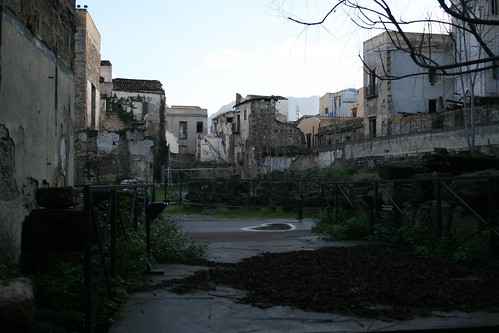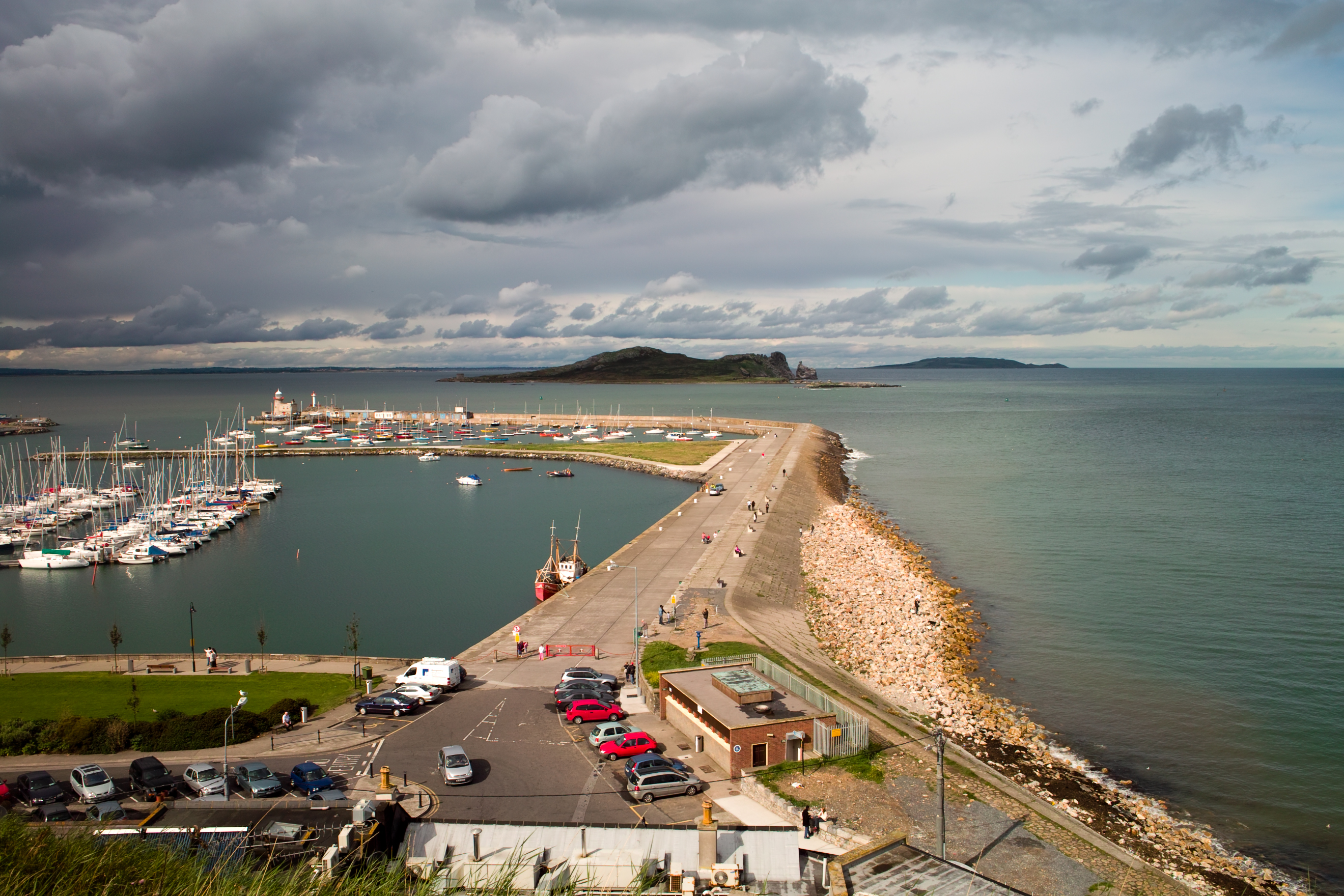 (Left: Crematorium ruins, Sachsenhausen Concentration Camp)
(Left: Crematorium ruins, Sachsenhausen Concentration Camp)On my last day in Berlin and Europe, I took the S-Bahn (subway) to Oranienburg to see Sachsenhausen Concentration Camp. Sachsenhausen was at its core like any other concentration camp: it was the site of premeditated torture and murder on a mass scale.
I wandered the grounds for several hours by myself, and am grateful to have had the opportunity to see and reflect on the place on my own. There are times when it is good to have friends, be they close compatriots or new acquaintances, while you travel. Other times, it's best to be just be alone in your own thoughts. For me, Sachsenhausen was one of those times.
Sachsenhausen, though it was similarly the scene of unimaginable cruelty and misery, differed from most of the camps Americans are familiar with in several extremely important ways. It was located not on Germany's fringes but right in Berlin's suburbs; like myself and most current-day visitors, the earliest prisoners at Sachsenhausen walked there from the S-Bahn/railroad station in the middle of town. The Nazis made the marches into public spectacles, and the obliging local population was encouraged to line the streets and hurl insults, fruit, and stones as the prisoners walked past. Although the marches were eventually discontinued for logistical reasons, the site of ashes falling in Oranienburg was not unfamiliar in the war's later years. Many historical revisionists claim that the Germans had no idea what the S.S. was carrying out in the East. They may not have known the full extent of the horrors there, but Sachsenhausen, just 23 miles from Brandenburg Gate, strikes me as definitive proof that they had at least an idea.
It also was not part of the Final Solution, the seminal point of Nazi madness that was the orderly genocide of millions of Jews, Gypsies and Slavs, although many of those people did pass through on their way to their deaths (and many thousands of Russian POW's were executed there). Rather, Sachsenhausen was primarily a "work" camp for political prisoners and P.O.W.'s; if you lived in Berlin during the Third Reich and actively opposed or resisted the Nazi regime, there's a decent chance you would have ended up there. Most (not all, but most) of the people who came through its infamous doors freely chose to resist Nazi crimes rather than collaborate or ignore them for their own behalf, either by resisting German aggression (P.O.W.'s), actively fighting back against Nazi rule, or simply by refusing to fight for a morally defunct nation. Many hundreds or thousands of those in the latter group who died could have received their release - right up to the moment of their deaths in the case of many Jehovah's Witnesses - simply by signing their conscription papers and joining the Wermacht (the German army), but only a handful did.
It is difficult for me to recount the tales I heard there; the pain the prisoners suffered is in many ways impossible to convey first-hand, let alone second-hand in my words instead of theirs. But I will say that I did not leave Sachsenhausen or Berlin emotionally troubled. Instead, I felt renewed confidence in humanity. There are bad people in this world, there are many more who do very bad things, and untold more who refuse to speak up. But at Sachsenhausen, a small detachment of brainwashed murderers stood guard over tens of thousands of people who did speak up or fight back, usually against near-impossible odds. Each of the 200,000 people who passed through the gates before their liberation in 1945 was likely just one of many in a circle of friends or family that refused to buy into Nazi madness. If that ratio doesn't bode well for humanity, I don't know what does.
Sachsenhausen to me is not merely a symbol of the horrible things we are capable of doing to each other. It is a symbol of the sacrifice we are capable of making for each other. It is not just a memorial to the murdered peoples of Europe; it is an everlasting memorial to the hundreds of thousands who endured unimaginable torture and death rather than take part in those crimes or sit silently by. Sachsenhausen is not just a monument to hate. It is a testament to hope.












.jpg)














